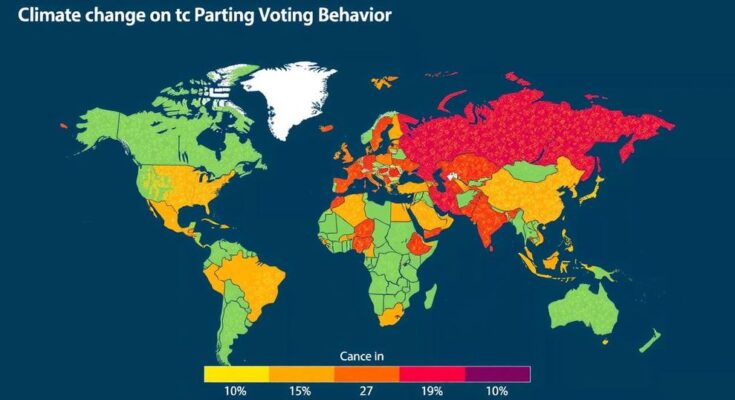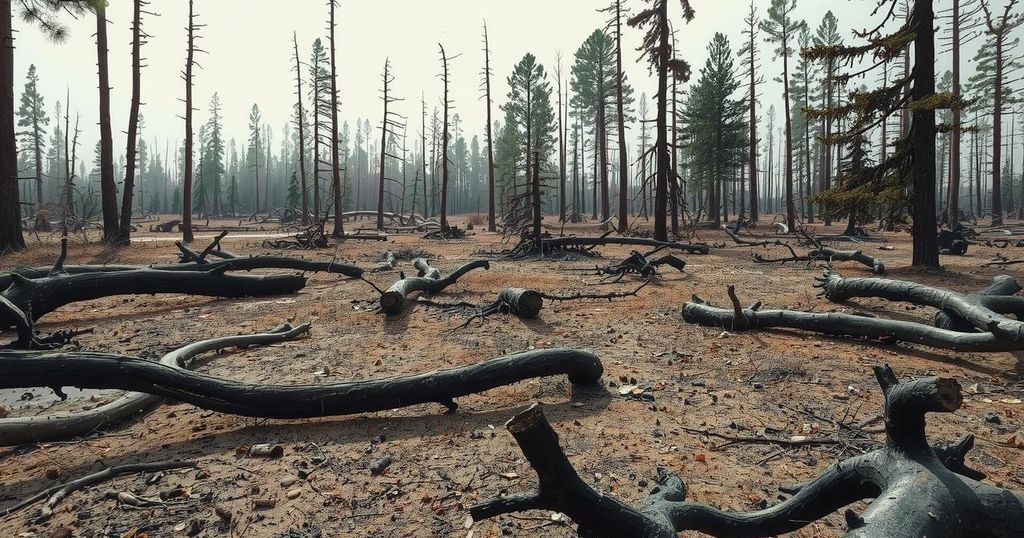Despite the growing impacts of climate change, such as severe wildfires and hurricanes, researchers indicate that discussions on these issues are unlikely to sway voter opinions in the current political landscape. Lawrence Hamilton of the University of New Hampshire highlights the influence of misinformation and identity politics on electoral behavior, noting a potential shift in impact as younger generations become more engaged with climate issues.
Climate change is contributing to increasingly severe weather phenomena, such as intensified wildfires in the West and stronger hurricanes in the South. Despite these alarming trends, researchers such as Lawrence Hamilton from the University of New Hampshire indicate that discussions about climate change are not significantly influencing voter decisions. Hamilton has studied public perceptions of climate change for over a decade, observing a decline in climate change awareness following the COVID-19 pandemic, largely due to the proliferation of misinformation about government and scientific claims. He notes that identity politics play a crucial role in electoral behavior; voters tend to align their political beliefs closely with personal identity, which makes altering their stance on climate change particularly challenging. This is especially evident among individuals aged 30 and older, while those in their 20s show a greater propensity for reconsidering their views. Hamilton highlights a generational divide on climate consciousness, stating that younger voters are more inclined to attribute climate change to human actions and express concern over its effects. Consequently, as awareness shifts among younger populations, climate change may become a more pivotal issue in future elections, particularly in the Mountain West region.
Recent adverse weather events, exacerbated by climate change, have raised concerns about the implications for electoral politics in the United States. The escalation of extreme weather phenomena has been accompanied by a decline in public engagement on climate change, particularly influenced by misinformation campaigns. Researchers like Lawrence Hamilton focus on understanding the dynamics between climate perception and voting behavior, emphasizing the historical growth in awareness and the subsequent stagnation linked to political and social factors. Variations in age demographics and their attitudes toward climate change further complicate the issue, indicating that younger voters could be more responsive to climate narratives in elections.
In conclusion, while climate change continues to manifest through severe weather events, its impact on voter behavior remains minimal, primarily due to the intertwining of personal identity with political beliefs. The rise of misinformation and a generational shift in perspectives suggests that although current electoral cycles do not reflect climate concerns effectively, future elections may be more affected as younger voters become more influential. As awareness evolves, climate change could emerge as a crucial topic in the electoral discourse, particularly in the West.
Original Source: www.upr.org




